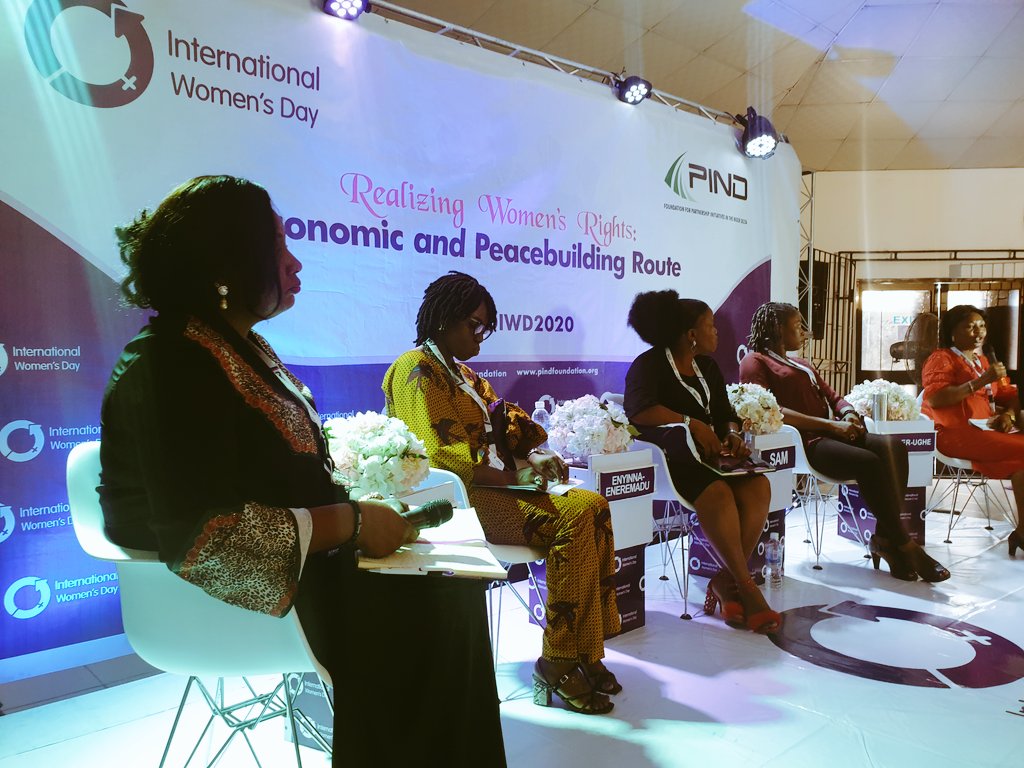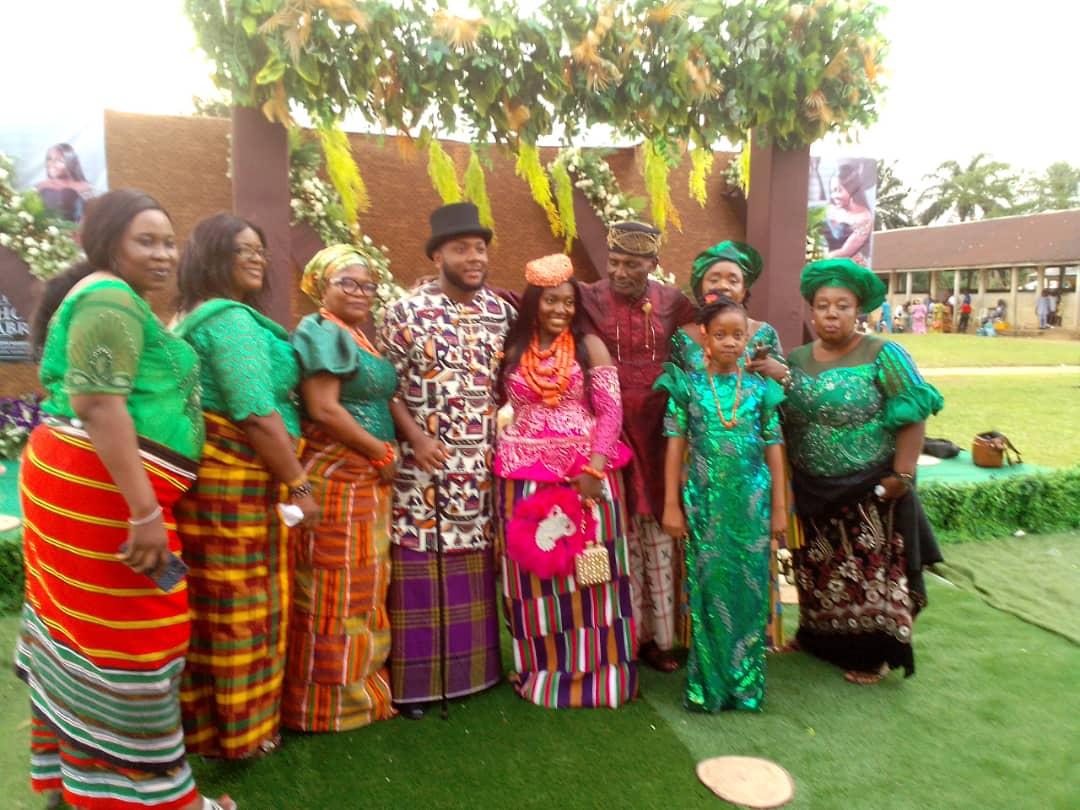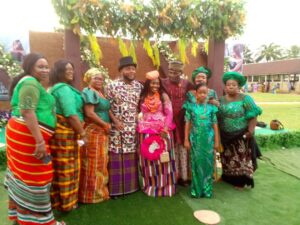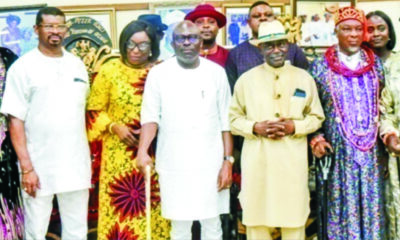Women
The World’s Women 2020: Trends And Statistics

Less than 50% of working-age women are in the labour market, a figure that has barely changed over the last quarter of a century, according to a new UN report launched recently. Unpaid domestic and care work falls disproportionately on women, restraining their economic potential as the COVID-19 pandemic additionally affects women’s jobs and livelihoods, the report warns.
The World’s Women 2020: Trends and Statistics compiles 100 data stories that provide a snapshot of the state of gender equality worldwide. Presented on an interactive portal, the report analyses gender equality in six critical areas: population and families; health; education; economic empowerment and asset ownership; power and decision-making; and violence against women and the girl child as well as the impact of COVID-19.
“Twenty-five years since the adoption of the Beijing Declaration and Platform for Action, progress towards equal power and equal rights for women remains elusive. No country has achieved gender equality, and the COVID-19 crisis threatens to erode the limited gains that have been made. The Decade of Action to deliver the Sustainable Development Goals and efforts to recover better from the pandemic offer a chance to transform the lives of women and girls, today and tomorrow” said UN Secretary-General António Guterres.
Unpaid domestic and care work holding women back
While unpaid domestic and care work has intensified for both men and women during the COVID-19 pandemic, women continue to do the lion’s share. On an average day, women globally spend about three times as many hours on unpaid domestic and care work as men (4.2 hours compared to 1.7). In Northern Africa and Western Asia that gender gap is even higher, with women spending more than seven times as much as men on these activities.
This lopsided distribution of unpaid domestic and care work prevents women from participating in the labour market. In 2020, only 47% of women of working age participated in the labour market, compared to 74% of men – a gender gap that has remained relatively constant since 1995. In Southern Asia, Northern Africa and Western Asia, the number is even lower, with less than 30% of women participating in the labour market. And the pandemic is expected to exacerbate these gender disparities, as many women work in the subsectors hardest hit by COVID-19 and lockdown measures, including in paid domestic work, accommodation and food services, and the retail trade. Women also make up over 70% of workers in the health sector, therefore facing higher infection risks than men in the workplace.
No cracks in the glass ceiling
In terms of power and decision making, women held only 28% of managerial positions globally in 2019 – almost the same proportion as in 1995. And only 18% of enterprises surveyed had a female Chief Executive Officer in 2020. Among Fortune 500 corporations only 7.4%, or 37 Chief Executive Officers, were women. In political life, while women’s representation in parliament has more than doubled globally, it has still not crossed the barrier of 25% of parliamentary seats in 2020. Women’s representation among cabinet ministers has quadrupled over the last 25 years, yet remains well below parity at 22%.
Women’s participation in education on the rise worldwide
The world has made substantial progress in achieving universal primary education, with girls and boys participating equally in primary education in most regions. While school closures related to COVID-19 are likely to set back progress on access to education, evidence shows that girls, once they have access to schooling, tend to do better than boys in terms of academic achievement. In tertiary education, women outnumber men, and enrolment is increasing faster for women than for men.
However, women continue to be underrepresented in the fields of science, technology, engineering and mathematics, representing only slightly more than 35% of the world’s STEM graduates. Women are also a minority in scientific research and development, making up less than a third of the world’s researchers.
Violence against women and girls remains a global issue
During COVID-19 lockdowns, many women and girls have been isolated in unsafe environments where they are at heightened risk of experiencing intimate partner violence. Around one third of women worldwide have experienced physical and/or sexual violence by an intimate partner; and 18% have experienced such violence in the past 12 months. In the most extreme cases, violence against women is lethal: globally, an estimated 137 women are killed by their intimate partner or a family member every day.
While female genital mutilation is becoming less common in some countries, at least 200 million girls and women alive today have been subjected to this specific form of violence across Africa and the Middle East where the practice is most prevalent.
In a sign that attitudes are changing, women’s acceptance of being beaten by their partners decreased in almost 75% of countries with data over the past seven years. But laws to address domestic violence are not yet universally available, with only 153 countries having such laws. Gaps are largest in Northern Africa, Western Asia and sub-Saharan Africa, where 43% and 35% of countries respectively have not passed such laws.
Reliable and timely data are critical
Reliable, timely and disaggregated data are critically needed, particularly now as the international community responds to the COVID-19 pandemic, to effectively measure progress in achieving gender equality. Closing the data and evidence gaps through regular collection and use of gender statistics is crucial.
“I call on all countries to accelerate efforts towards the empowerment of women and girls and towards improving the evidence base to monitor progress: data gaps in the coverage of key gender topics need to be filled,” said Liu Zhenmin, UN Under-Secretary-General for Economic and Social Affairs. “Timeliness and comparability of data over time and across countries need to be improved, and data disaggregation and dissemination by age, sex, location and other key variables need to become a priority in order to fully measure and address intersecting inequalities, respond to crises, and ensure gender equality by 2030.”
About the World’s Women report
Produced by the Statistics Division of the United Nations Department of Economic and Social Affairs, the World’s Women report has been produced every five years since 1990 and provides the latest data on the state of gender equality worldwide.
Women
The Desire Of Every Woman In Marriage

A woman needs a man that is honest, trustworthy, nice, loving and financially stable.
There are no two ways about finance in marriage. No matter the level of love, If there is no money, it is always difficult.

Referring to the Biblical belief in Genesis 3:Your desire shall be unto you……..
That is one aspect the woman expects her husband to take care of.
A woman wants a husband that is not lazy, at least helping to do one or two things. A man that is educated and intelligent.
She knows that there is a trait that her husband has. Traits of taking care of people, giving freely to people and caring for her family.
A woman wants to love a husband that has family interest at heart. A man that spends time with his family, remembering his family even as he is away from home.
A woman should not antagonise her husband because of one error or the other. No matter the level of offence he may have committed, you still show some love.

According to the Scripture, it is with wisdom that the women builds her home.
It is not as if the woman will not monitor her husband, but to certain limit. Don’t be a monitoring spirit. Don’t allow anything to take your joy.
Don’t loose trust in your husband.
The idea of checking your husband’s phone should be discouraged. The more you check your husband and his phone, the more you loose your joy.

The home should not be a battle ground for a woman and man. A woman should be able to ask herself if the check on her husband will pay her any good.
Draw a line to a point where you checkmate your husband’s activities.
A woman wants a man that will love her and telling her you love her will be all she desires.
Eunice Choko-Kayode
Women
What Women Want In Yet-To -Be Husbands
What women want in their yet-to- be husbands matters a lot as far as marriage is concerned.
A woman desires a good fnancial prospect. Interestingly, some modern women place a man’s financial potential as more desirable than they have in the past.
Many decades ago, women ranked it lower on the list. It still comes in after items like love and maturity, but perhaps today’s women realise that a good economic partner is good husband material.
Good health has been an important characteristic for women through the 20th century and remains so these days. One might argue that because we’re living even longer, health plays a huge role in the success of a marriage. Women are anxious to know that their partners are healthy to be able to run the family together.
You discover that in most faith based organisations, would- be couples are mandated to go for medical tests to ascertain their health status as it concerns HIV/AIDS, Genotype and other related ones. This according to stakeholders is to ensure that couples raise healthy families.
Ambition has become less important to women over time, though it still being considered even if women nowadays are thriving in the workforce competing with the male folk. It may be because more women are thriving in the workforce, they want a husband who has earning power but are not looking for him to be the sole provider.
More women want husbands with pleasing disposition. They may not want a man who is always moody. A man who is always cheerful is whom they desire.
Surprisingly, a man’s likes do not rank as high on women’s list of wants as it used to. Until recently, women are more willing to accept a man for who he his, despite the inevitable mood he may be.
Sociability from both men and women rank very high on their marriag material list. And for both sexes, it has been steadily moving up the list for many years. The rise of the “love marriage,” a partnership based on attraction rather than practicalities (like wealth or status) might mean that married couples are more likely to be friends and have mutual circles of friends.
A lot of couples want to associate with others and then socialise. Attending parties of other friends forms part of their marriage requirements.
Women have placed education and intelligence top making it one of their most desirable male traits for decades. This timeline coincides with more and more women receiving college education themselves. Once education becomes important in women’s lives, it is a more attractive trait in potential husbands.
Of course when a woman is educated, she is likely to go for an educated man. When they are gainfully employed, their income boost the family affairs faster.
Today, women are much more attracted to men who are interested in home and family than they ever have been. Men who have desire for their home and children is whom they desire.
After a days job, a man will come home to ensure that his children are comfortable. Because most women today are expecting to be in dual-earner relationships, they want husbands who will be happy and willing to contribute at home. More women today even report that they hope he will take the lead at home.
A woman wants a man who is emotionally stable and mature. Growing big physically is not the issue but maturity in the heart.
Men, too, place a heavy emphasis on a potential wife’s emotional maturity, signaling that it is a key quality for a stable partnership. Women seem to look past appearance to the heart of the matter.
A woman wants a man who is not easily provoked. Dependable character is what some women want in marriage.
Women want husbands that they can count on, and this has not changed in recent years. Yes, women look to their spouses to be lovers and friends, they also want them to be supportive and trustworthy. They want to know that their husbands will be there and remain loyal. Men, too, desire dependable character from their yet-to be wives.
Mutual attraction and love from the first appearance is what they want till they become old.
The highest-rated characteristic women seek from men is mutual attraction and love. Some no longer look for a man who will provide everything, afterall they are also educated and are gainfully employed, they want to be in love.
For some women, even when the man do not provide household needs, the love shown on her is enough. When women had no job prospects and needed to marry, they desired love . The women’s movement has not only helped women pursue careers, it has also given them more choice in love.
Women
Echoes Of IWD : Need To Invest In Women
As this year’s Internatinal Women’s Day (IWD) has come and gone, there are calls from different quarters on the need to invest in women so that we can achieve accelerated growth.
It was, indeed, a thing of joy when Rivers Women Unite For Sim, took delivery of large quantities of sanitary towels and some bags of rice provided them for this year’s celebration.
Many young women expressed joy that they got such gesture since some of them have financial problems getting sanitary towels whenever they are on.
Some secondary school students were also lucky to have a share of the benefits. They also got some sanitary towels.
The Rivers State Commissioner for Women Affairs organised a platform to celebrate and honour the women for the remarkable jobs they perform in their homes and society.
Addressing women on the occasion, the Hon. Commissioner for Women Affairs, Dr. Roseline Apawari Uranta, noted that women from time immemorial have been great pillars in achieving remarkable heights and stressed that IWD across the globe is pivotal all women for the roles they play in bringing, nurturing and sustaining life.
Dr. Uranta said that IWD, which started in 1911 and celebrated annually on March 8, is a global day that provides women a platform to address economic inclusion, participation in political and public life.
She said the day was set aside to look into lack of access to education for the girl-child, gender-based violence, child marriage, child trafficking, harmful cultural practices as well as other challenges facing women around the globe.
The Hon. Commissioner, who described March 8 as a day to celebrate the socio-economic, cultural and political achievements of women, emphasised that it is a day that offers women the opportunity to reflect on progressive achievements.
Noting that it is an opportunity to call for change, she stressed that it is also an opportunity to celebrate acts of courage and every achievement made by ordinary women who did extraordinary things and are remembered in history.
She noted that the IWD2024 theme:”Invest In Women, Accelerate Progress”, is timely and apt because according to her, to achieve gender equality, we must ensure that the rights, responsibilities and opportunities of women do not elude them.
Her words: ” We must see investing in women as a human right issue and consider investing in women as a social tool to eradicate poverty since women are helpmeet in the homes while a handful are breadwinners in their respective families”.
The commissioner urged women to uphold the deliberate act of investing in themselves, be it furthering formal education, developing a new skill as well as learning a trade.
“Shun idleness, always find something positive and productive to do, regardless of your age, social status and financial capabilities”, she said.
In a paper presentation, Dr. Dabota God’swill Jumbo, reiterated that investing in women would attract good and positive dividends to herself and the society at large and noted that it is essential in addressing poverty, hunger and climate change.
The guest speaker said women need more opportunities in elective and appointive positions, hence the need to encourage and support them in politics.
According to her, when you invest in women, they will be able to create safer environment devoid of gender-based violence.
In a goodwill message, the spokesperson, Rivers Women Unite For Sim, Mrs Charity Deemua appreciated the organisers for making it possible for women to gather and celebrate themselves.
She commended those who created a day like March 8 of every year to celebrate women and regretted that the girl-child was seen as a second-class person decades ago.
The former commissioner, Rivers State House of Assembly Commission, described those who taught it wise for women to celebrate as conquerors, tough and strong.
International Association of World Peace Advocates, a world-class organisation with the United Nations, honoured different categories of women.
In Cross River State, 150 women were empowered with about N15m to boost their small and medium scale businesses.
According to stakeholders, the women empowerment is vital in addressing social, economic and political challenges and will make them self-reliant.
An NGO, Association of Professional Women Engineering Technologists (APWET), said it’s aim is to promote professional excellence among engineering personnel, advocating for women and girl-child education.
With what we saw in terms of response to women’s call on issues affecting them from relevant authorities, we are optimistic that the women will do better whenever they are empowered.
If we must kick out cervical, breast and other forms of cancer in women, underage marriage, prostitution, we must invest in women.
There were goodwill messages from National Council for Women Societies (NCWS), International Federation of Female Lawyers (FIDA), Medical Women Association of Nigeria (MWAN), Nigeria Copyright Commission (NCC, Nigeria Association of Female Journalists (NAWOJ), among others.
By: Eunice Choko-Kayode
-

 Maritime4 days ago
Maritime4 days agoFall Off Container Crushes Woman To Death
-

 Opinion4 days ago
Opinion4 days agoElectricity Tariff Increase: Problem Or Solution?
-

 News4 days ago
News4 days agoFubara Inaugurates Health Centre At Ndoni, Commends Odili
-

 News19 hours ago
News19 hours agoFG Now Spends N600bn Monthly On Petrol Subsidy -Rainoil CEO
-

 Business4 days ago
Business4 days agoNIPCO Gas Reduces CNG Price To N200/Scm
-

 Rivers4 days ago
Rivers4 days agoASALGA Team Donates Kits To Private Security Outfit
-

 Business24 hours ago
Business24 hours agoNigeria’s Oil Reserve Grows By 1.4% To 37.5bll Natural Gas By 0.5%
-
Sports19 hours ago
Barcelona Open: Nadal’s Comeback Ended By World No 11

